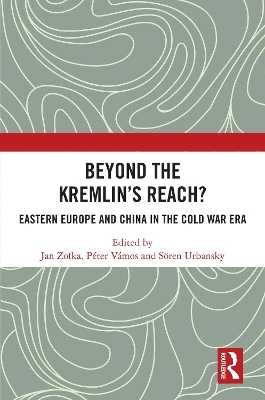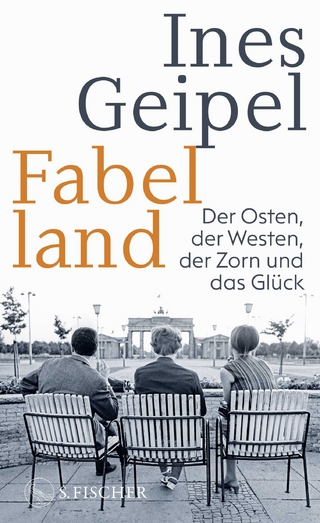
Beyond the Kremlin’s Reach?
Routledge (Verlag)
978-1-032-47053-5 (ISBN)
This volume examines relations between the People’s Republic of China (PRC) and socialist Eastern European states during the Cold War. The chapters take previous findings on government policy and China’s role as a global player in the Cold War game as a starting point to locate the PRC in the socialist world and assess levels of interaction beyond diplomatic and governmental relations. By focusing on transfers and interconnections and the social dimension of governmental interactions, the primary goal of this book is to explore structures, institutions, and spaces of interaction between China and Eastern Europe and their potential autonomy from political conjunctures.
The guiding question that the book raises is: To what extent did Chinese and Eastern European players, outside the range of the power centres, have room to manoeuvre beyond the agendas of the Kremlin, national governments, or party leaderships? The question of the relative autonomy becomes especially vibrant against the backdrop of the development of Sino–Soviet relations from alliance to split to reconciliation through the Cold War era.
This book contributes to the growing scholarship on East-South and intra-bloc relations from the perspective of global and transnational history and will be of interest to researchers, students and policy makers in the fields of History, East European and Russian studies, International Relations and politics. The chapters in this book were originally published as a special issue of Cold War History.
Jan Zofka is a Research Fellow at the Leibniz-Institute for the History and Culture of Eastern Europe (GWZO) Leipzig. He specializes in the transnational history of Cold war socialist economies and is author of the articles “Chairman Cotton: Socialist Bulgaria’s cotton trade with African countries during the early Cold War (1946–70)”, Journal of Global History (2021); “Technokratischer Internationalismus. Kohle-Experten der DDR der 1950er Jahre in globalgeschichtlicher Perspektive” Geschichte und Gesellschaft, 2021; and the monograph Postsowjetischer Separatismus: Die pro-russländischen Bewegungen im Dnjestr-Tal und auf der Krim (1989–1995) (2015). Péter Vámos is a Senior Research Fellow at the Institute of History of the Research Centre for the Humanities, Hungarian Academy of Sciences and Associate Professor at Károli Gáspár University of the Reformed Church in Hungary, Budapest. His research focuses on the modern history and international relations of China, the relations between the Soviet bloc and China, and the history of Christianity in China. His publications include Magyar jezsuita misszió Kínában [Hungarian Jesuit Mission in China] (Budapest:2003); Kína mellettünk? Kínai külügyi iratok Magyarországról, 1956 [Is China with us? Chinese diplomatic records on Hungary, 1956] (2008); and Magyar–kínai kapcsolatok, 1949–1989. [Hungarian-Chinese Relations, 1949-1989] (2020). Sören Urbansky is a Research Fellow and the Head of the Pacific Office of the German Historical Institute Washington at UC Berkeley. He is a historian of late Imperial Russian and Soviet history, interested in Russia’s place in Asia, and the intersection of its history with that of race, diaspora, and borders. Sören is the author of three monographs, including Beyond the Steppe Frontier: A History of the Sino-Russian Border (2020) and An den Ufern des Amur: Die vergessene Welt zwischen China und Russland [On the River Amur: The Forgotten Land between China and Russia] (2021).
Introduction Beyond the Kremlin’s reach? Eastern Europe and China in the Cold War era 1. Performing socialist Hungary in China: ‘modern, Magyar, European’ 2. Socialist exhibits and Sino-Soviet relations, 1950–60 3. Sino-Czechoslovak cooperation on agricultural cooperatives: the twinning project 4. Kremlinology revisited: the nuances of reporting on China in the Eastern bloc press 5. China as a role model? The ‘Economic Leap’ campaign in Bulgaria (1958–1960) 6. Promoting the ‘China Way’ of communism in Poland and beyond during the Sino-Soviet Split: the case of Kazimierz Mijal 7. A Hungarian model for China? Sino-Hungarian relations in the era of economic reforms, 1979–89
| Erscheinungsdatum | 17.07.2023 |
|---|---|
| Verlagsort | London |
| Sprache | englisch |
| Maße | 174 x 246 mm |
| Gewicht | 320 g |
| Themenwelt | Geschichte ► Allgemeine Geschichte ► Zeitgeschichte |
| Sozialwissenschaften ► Politik / Verwaltung ► Europäische / Internationale Politik | |
| Sozialwissenschaften ► Soziologie ► Spezielle Soziologien | |
| ISBN-10 | 1-032-47053-4 / 1032470534 |
| ISBN-13 | 978-1-032-47053-5 / 9781032470535 |
| Zustand | Neuware |
| Haben Sie eine Frage zum Produkt? |
aus dem Bereich


